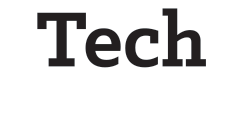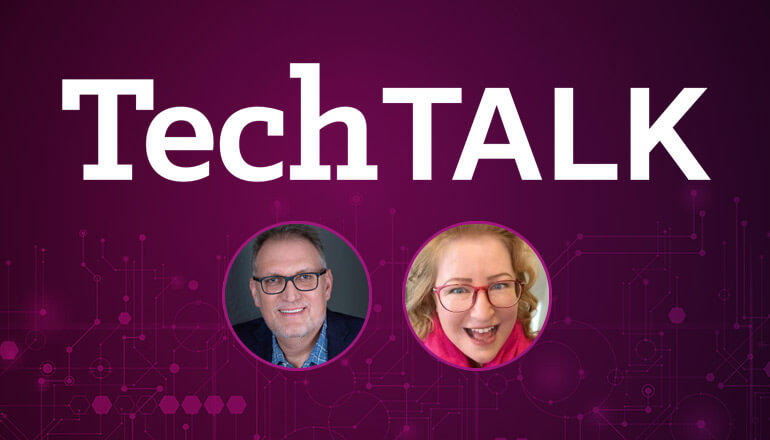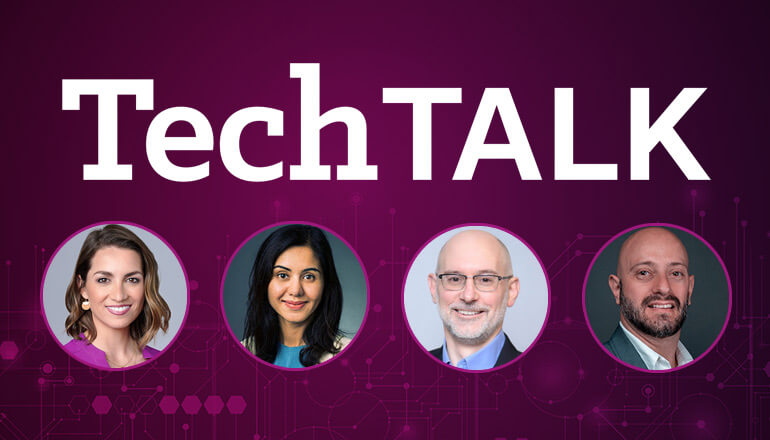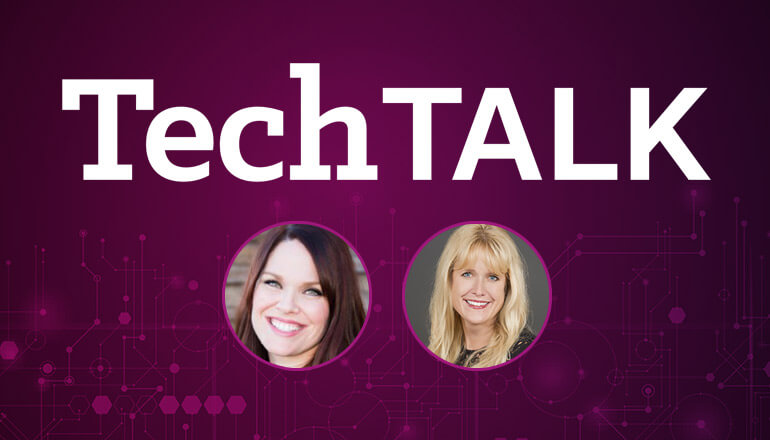Audio transcript:
Transforming the Public Sector With Insight and Cisco
Published December 11, 2020
SCOTT
Hi, I'm Scott Friedlander and I run Insight Public Sector. Thrilled to be here today, to talk to you about all the changes going on, certainly in our world. And we've experienced a lot of disruption in, and transformation particularly in the public sector.
You know, you can look at the public sector from a K-12 market, higher ed. municipalities state government and our federal business, and it's really impacted. COVID-19 has impacted so many different areas. I am thrilled today to bring Nick Michaelides, the senior vice-president of Cisco, and on behalf of the public sector. And we're going to talk to him today on all the neat things they're doing in transforming the public sector in this new world of ours.
Nick Welcome.
NICK
Thanks Scott. Thanks for having me.
SCOTT
Absolutely.
Why don't I start with just the first question you know, this is unprecedented time for sure. And customers are going through so much change and they really have to make smart choices, transformative choices with IT.
Can you call out a number of examples, I know we've worked together on a number of opportunities but really across the U.S with state local and federal where the customers have really innovated with Cisco and partners?
NICK
Yeah. I appreciate that Scott, appreciate your question and absolutely provide a quick perspective on kind of making smart choices for IT at kind of a high level. And then I'll give some real-world examples of things we saw from some of our customers during the pandemic.
First off, I think all of us including our customers need to reimagine the workforce moving forward to include things like people, technology, expanding the view of where and how work gets done. I think organizations in governments had to figure out overnight when the pandemic hit to how do we effectively and securely transition our workforces from being in the office, say 80, 90% of the time to full remote. So, it's not just technology, which is more on the front end. It's also people and to include, but not limited to expanding the landscape of where and how work is getting done. Things that organizations need to think about these moving forward. So, absolutely technology plays a key role in all organizations, whether it's public or private, but all of us need to pivot from saying that modernization is a top priority of actually delivering on that promise. I think things like cloud, automation, orchestration, programmability SD-wan, and leveraging collaboration platforms like WebEx that are all inherently built with security from the start. And then you start to leverage and layer in things like AI and ML, really helped deliver on that experience needed for the future.
So, you asked for a couple of examples that come to mind for me, I'll just a couple here, Buffalo three one-one one weekend in March, there was a we had a 48 hour turnaround with the city of Buffalo, the University of Buffalo and Cisco. We came together to plan and implement and stand up. Buffalo's 311 call in resolution center over a weekend, right as the pandemic hit. Thankfully the university of Buffalo who had already had a 311 call system that was already modernized and ready to scale. Once the pandemic hit was able to quickly get with the city of Buffalo and Cisco and literally over the weekend, Scott, complete the plan and start to take calls by Monday morning. This was truly phenomenon.
I think another one that I like to call out is East Carolina university school of dental medicine. They are using Cisco technology to deliver healthcare services to patients in very, very rural areas across North Carolina. They wanted to ensure that their students and the patients were able to stay connected when the pandemic hit, and leverage telehealth solutions based on Cisco technology, to deliver a remote dentistry in ways prior to the pandemic that they themselves would tell you they had no idea they ever could have imagined.
So, in summary, Scott, technology is for sure front and center, but let's not forget about our people and where and how work will need to get done. It will be just as important. By all means, look, security needs to be flexible with the current realization that one day you're in the office and the next day you're outside of the office working from home.
SCOTT
So that plays perfectly into my next question which ties to not only the solutions you mentioned actually not only a school level at a university level at a state government level, but now security is security and security always right. Security, as it relates to data security and intrusion. And how does it impact distance learning and secure remote work? I mean, I'm for the first time with three teenagers here, one going to college, we're living it every day.
So just, could you really just speak to data safety, security safety and then distance learning with remote work as well?
NICK
Yeah, Scott, you and I both spent the majority of our careers in some form of fashion supporting the government. And as you notice, security is and always has been the non-negotiable. You can have the best hardware. You can have the best software you have the best application in the industry. And if it doesn't meet the security requirements and certifications of our government and or regulated markets they're not going to be able to consume it. Right?
So, if you're in the healthcare space it's all about HIPAA compliant, right? Protecting that patient data is so, so critical. And if it's hardware on premise for some of our government customers it's all about fips and common criteria. Just to name a few of those hardware certifications needed to be able to place that gear on site for our customers. And if it's applications and software, need to be accessed by one of our government customers from say a cloud provider, as an example, you know it better well be FedRAMP certified.
So, for us at Cisco Scott, we continue to leverage technologies like umbrella, duo, SD-wan really help us maintain that end-to-end security. So, whether you're a remote user, a remote branch or just doing a video conference like you and I are doing today from our houses. We need to make sure that security is inherently built into everything that we do. So, look, we want all of our customers and partners in our citizens to know that when they leverage Cisco technology and platforms like WebEx whether they're working in their office to their homes and or somewhere in the middle in between that we, Cisco, have built those platforms or those products with security as a foundation. So that the confidence that we all want to have when we're leveraging technology is there. Data privacy and protection is paramount for our customers and our citizens as it should be.
SCOTT
Absolutely. And that really feeds into my next question. You know, you speak to the federal business with it the customers in that segment the civilian agencies or DOD, we mentioned healthcare on one side was staying local I mean municipalities but the next is thinking about K through 12 and higher ed. It's so diverse. You know, you have children that are just coming into rage. Well, kindergarten, fifth grade, sixth grade, middle school high school, and then, and then colleges. And colleges at all different levels, right?
Let's, just speak to me about how teachers can leverage the technology to create engaging distance learning opportunity and experience.
NICK
Yeah, absolutely.
Look, the main or primary mission of every school, college and university across the US is to really give each and every student the opportunity to achieve success. So, when the pandemic hit, the pivot was to quickly figure out how to do distance learning or move from what I like to refer to as more of a longer-term hybrid learning environment. It's not just remote because it depends on the school and some of the school districts right now, Scott in the K through 12 space, you'll have some kids in school one day and some kids will be remote in certain other days. Right? And I would venture to bet that in the future whether it's a K through 12 school or even a higher K or higher educational institution, excuse me, that they will be a hybrid approach to how they do teaching and learning moving forward.
I think earlier on Scott, the problem we saw was that the schools did not have the proper infrastructure and limited and or outdated collaboration tools. Look, schools in the past were hiring teachers to teach not hiring technologists to teach, but that's what kind of played out post pandemic. Teachers woke up and had to use technology to connect with their students and parents which was way different than what they've done in the past.
So as an example, when Shawnee mission school district 512 implemented Cisco collaboration technology in its classrooms, offices and their STEM buildings. Their faculty, their students, and parent engagement increased like never before. And some of the outcomes that they saw where they now had a collaborative platform and enabled change management programs for their employees, their faculty their students, their parents interacted using video during and outside of school times. And I think it gave them an easy-to-use technology that really enabled real time learning in the classroom. So, in short, Scott, teachers and professors really need to embrace the technology going forward. Don't go back to the old way. I think hybrid learning is the future and here to stay and don't be afraid to lean on companies and partners like Cisco and Insight, like we did with Shawnee mission schools, we'll work with those schools to deliver state-of-the-art teaching platforms that will deliver on the experience that every student and every school system deserves no matter where you live in the US.
NICK
You know, that one of the things into the public sectors doing with you and a few other partners that have all the capabilities, so, we aggregate is exactly that big wireless deployments in demographic areas that really can't afford and don't have the means to provide to the students or to the citizen. So, agree. It's a unique time for companies like ours coming together and really helping organizations that need that support.
So, one of the things years ago that I did with Cisco was returned, there was a training initiative around return on invested capital, and it was to make the most out of your investment and this plays to my last question which is how do we make sure in this distance world this physical change world, to make sure that people engage and invest the right way for the long term with companies like Cisco and Insight public sector. So, their dollars are really used for a long-term initiative and not short moments of time.
NICK
Great agreed and look and Sure you know, the first thing to do is ensure that you have a company strategy for transforming and modernizing your business have a digital transformation plan in place that you do not end up on the wrong side of the digital divide. I will tell you technology is the enabler to rapid digitization, but people and processes are just as important. So, employee engagement all the way leadership and culture will absolutely make a difference. And from my perspective really help organizations and governments around the globe truly, truly thrive in this new norm. When we think about employee engagement we need to help avoid employee burnout and we've got to help our employees stay connected since we're no longer together in the office Scott or no longer on business travel together or attending events. We've got to ensure that the mental health of our teams and our employees needs to be as good as it can be. And then making sure that we are attracting the right new talent while developing them and ultimately keeping them will require new leadership skills. And I think muscles that we've not exercised in the past but it's critical for us moving forward. We need to figure out how to thrive in this new environment.
Quality leadership matters. We've got to stay close to our people. I think empathy and compassion are a must in how we should lead. I think that life-work integration is really important going forward. And we collectively, whether it's your company, Scott or a Cisco or the government, you need to figure out how to make work fun.
I think the last thing I'd like to touch on is culture is the real differentiator and why I love working here at Cisco ever since the pandemic hit, and, you know, well, before that Cisco showed up in such a big way for its people in our communities ensuring that the people within Cisco and around us knew about what we were doing and the positive impact that was having on our culture which truly propelled us to be the number one best place to work for now the second year in a row. And trust me, we are still laser focused on world changing technologies, but our strong culture and creating an inclusive future for all is really resonating with our employees our partners, and our communities around the world.
So as an example, our CEO, Chuck Robbins, who, you know donating time and money to support nonprofits addressing critical human needs or giving employees a mental health day off, standing up on the right side of social injustice and also donating money to organizations like the Ford foundations and others are some of the things that Chuck is doing. He's also setting up Ask me anything sessions on a monthly basis with every single employee of the company, where we have doctors and mental health experts show up where we have celebrities and guest speakers discuss their views on social injustice and also perform for us and allowing our employees to ask our executive leaderships live questions about what Cisco is doing to truly make a difference.
I think people around the world, Scott, are struggling and I really do believe that people want to know that there's more to work than just a paycheck. Yes, technology is on the front end of this discussion, but Scott, I also strongly believe that our people leadership and culture matters just as much. So, make sure you invest in a flexible elastic infrastructure. So you can handle where people will work from home in the future, as well as equal investments in people, leadership and culture.
SCOTT
Nick I've known you a long time. I've known Chuck long time. Ken Lamneck our CEO, you know he's built a great company at Insight. I've been fortunate to come in here and lead the insight public sector. And it is about culture, people, communications and really the adjustment as you made.
I can't thank you enough. love being a partner within, with Cisco and Insight Public Sector, working together. Look for great 2021 moving forward and really helping our customers support their mission as well. Thank you again. Really appreciate it.
NICK
Appreciate the partnership, Scott. Thanks for having me here. Take care
SCOTT
Thank you and thanks for joining Insight Tech Talk, I'm going to rename it Insight Public Sector Tech Talk. Have a great day and thank you everyone.









